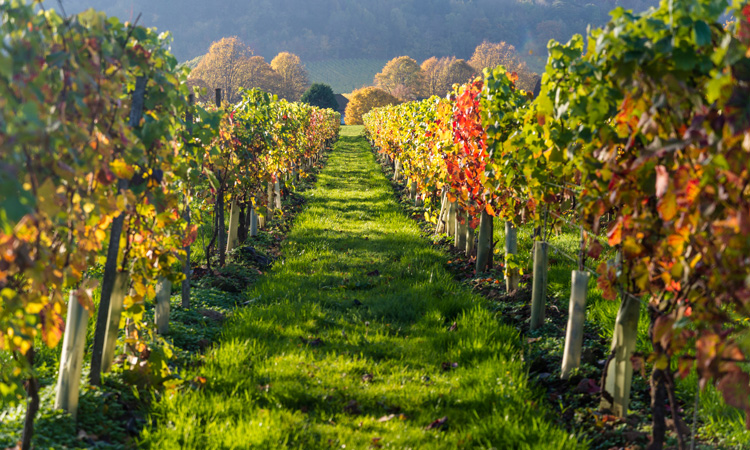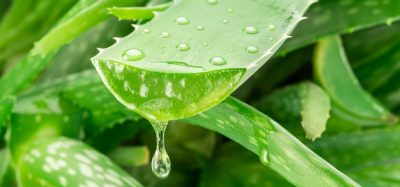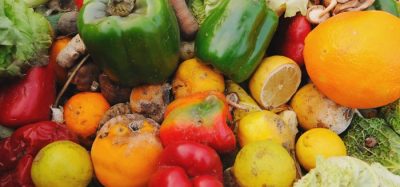Climate change could create opportunities for UK viticulture
- Like
- Digg
- Del
- Tumblr
- VKontakte
- Buffer
- Love This
- Odnoklassniki
- Meneame
- Blogger
- Amazon
- Yahoo Mail
- Gmail
- AOL
- Newsvine
- HackerNews
- Evernote
- MySpace
- Mail.ru
- Viadeo
- Line
- Comments
- Yummly
- SMS
- Viber
- Telegram
- Subscribe
- Skype
- Facebook Messenger
- Kakao
- LiveJournal
- Yammer
- Edgar
- Fintel
- Mix
- Instapaper
- Copy Link
Posted: 29 January 2020 | Sam Mehmet (New Food) | No comments yet
Agri-Tech-E is bringing together viticulture experts with enterprising farmers and technologists at an upcoming event to discuss the emerging agri-tech that is supporting growth in the UK viticulture industry.


Warmer summers could extend the area where grapes can be grown productively in the UK, according to Dr Belinda Clarke, Director of Agri-TechE, the agri-tech innovation hub.
“Recent research suggests an area in the UK the size of the Champagne region would be profitable for vineyards, extending far beyond the traditional fruit growing regions. The improved quality of the product and the benefits it offers for carbon storage and regenerative agriculture are making viticulture an interesting option for growers,” commented Clarke.
“Contrary to popular belief, I do not think there is a reluctance from farmers to invest in new technology. The concern is more of the risk of it going wrong and the impact on the bottom line. The challenge is how to create a viable business model to support its adoption,” said Chris Roberts, Head of Robotics and Associate Director of the Technology Leadership Group at Cambridge Consultants.
Annie Landless, Community Lead from Vidacycle, a company that aims to develop tools for small-scale farming, will be speaking at the event about a collection of tools that enable more informed decision making in vineyards. Their Ripeness Indicator, for example, enables the winemaker and vineyard manager to compare the ripeness curve between different sites in real-time to see how the acids and sugars are progressing to support better decision-making at harvest.
“Using the tools to look at historical data we can clearly see that ripening dates have gradually shifted earlier and earlier over the last 20 years – there is no doubt things are changing and the summers do appear to be getting hotter,” Landless said.
“Certainly, the reality of climate change to date is that everything becomes less predictable and more extreme, so building resilience becomes more important – and a healthy soil is the ultimate buffer. We encourage people to build soil health with regenerative agricultural practices to improve water retention and bioavailability of nutrients. Vineyards can also provide a carbon sink.”
Julien Lecourt, Senior Research Scientist at NIAB EMR at East Malling (Kent), said that although temperatures are rising, “our climate is going to remain categorised as ‘cold/cool’ for viticulture and climate change predictions forecast more extreme events such as late frost.
“We are running a project in collaboration with the University of Bordeaux at the Research Vineyard. There are 13 varieties of grape: five are already largely planted in the UK, while eight are considered as not yet suitable for our climate but are indicative of which varieties could be grown in the future. The first crop has been obtained (2019) and data collated to model the varieties which are going to be suitable for our climate.”
Claire Donkin, Technical Associate at Global Plant Genetics, commented that it is not only conditions for the plants themselves that are changing but also the background pests and diseases; a multi-level approach is needed to give plants a healthy start and a robust resistance to environmental change, she noted.
The event – Nothing to W(h)ine About – Uncorking the Opportunities for Innovation in Viticulture – will be held at Cambridge Consultants, Cambridge, 11 February 2020.
Related topics
Environment, Research & development, Sustainability, Technology & Innovation
Related organisations
Related regions
Related people
Annie Landless, Chris Roberts, Claire Donkin, Dr Belinda Clarke, Julien Lecourt








